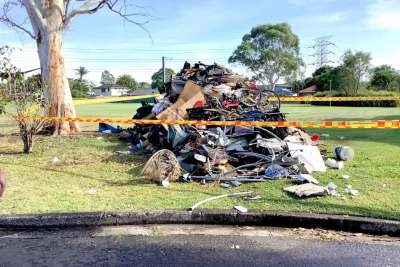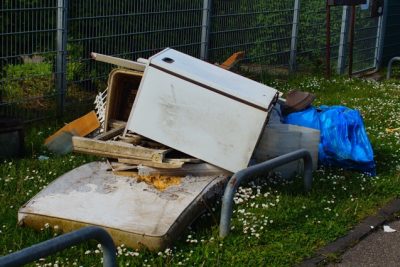In Sydney, the issue of placing your rubbish in a neighbour’s bin may seem minor, but it carries significant legal, social, and environmental implications. This practice is not only disrespectful to your neighbours but also illegal. Let’s explore why it is important to use your own bin and the consequences of not doing so.
Whilst we all hope that our neighbours would see the situation lightly, some may not, and under New South Wales law, placing your rubbish in someone else’s bin could be considered illegal dumping. This includes any form of waste, from household garbage to recyclables. The penalties for illegal dumping can be substantial, with fines reaching up to $2,500. Adhering to the law ensures you avoid these fines and contribute to a more orderly community.

When you use your neighbour’s bin without permission, you deprive them of the space they need for their own rubbish. This can lead to overflowing bins, which are not only unsightly but can also attract pests. Respecting your neighbours’ property is fundamental to maintaining good relationships and a harmonious community. Each household is allocated a certain amount of bin space based on their waste needs, and using someone else’s bin disrupts this system.
Sydney has a structured waste management system, with different bins designated for general waste, recyclables, and organic waste. Misusing these bins by placing the wrong type of waste in them can disrupt the recycling process and lead to environmental harm. Proper waste disposal helps ensure that recyclables are processed correctly and that general waste is managed efficiently, contributing to a cleaner and more sustainable environment.
Missing bin collection day is a common issue, but it is not an excuse to use a neighbour’s bin. Setting reminders or coordinating with your household can help ensure that your bins are placed out on time. If you consistently generate more waste than your bin can handle, consider requesting a larger bin or more frequent pickups from your local council. Proper planning can prevent the need to infringe on your neighbours’ bin space.
If you regularly find that your bin is insufficient for your needs, it might be time to reconsider your waste habits. Reducing waste, recycling more effectively, and composting organic materials can significantly decrease the amount of rubbish you need to dispose of. For excess waste, local tips and recycling centres provide alternatives for responsible disposal.
Maintaining a clean and orderly environment is a shared responsibility. Using your own bin and respecting waste management rules contribute to a cleaner, healthier Sydney. Illegal dumping and misuse of bins undermine these efforts, leading to increased litter and environmental degradation. By adhering to waste disposal regulations, we all play a part in preserving the beauty and cleanliness of our city.
Being considerate of your neighbours extends beyond just waste disposal. Using their bins without permission can lead to tension and conflict. Good neighbourly relations are built on mutual respect and consideration. Ensuring that you manage your waste responsibly helps maintain a positive and supportive community atmosphere.
If you find yourself with more rubbish than your bin can handle, explore alternative disposal options. Many councils offer additional waste collection services for a fee, as well as designated days for free disposal of larger items. Utilizing these services ensures that your waste is managed properly without imposing on your neighbours.
In summary, placing your rubbish in a neighbour’s bin is not only illegal but also inconsiderate and environmentally detrimental. By using your own bin, respecting collection schedules, and exploring alternative disposal options, you contribute to a cleaner, more harmonious community. Proper waste management is a collective effort that ensures Sydney remains a vibrant and livable city for everyone.




